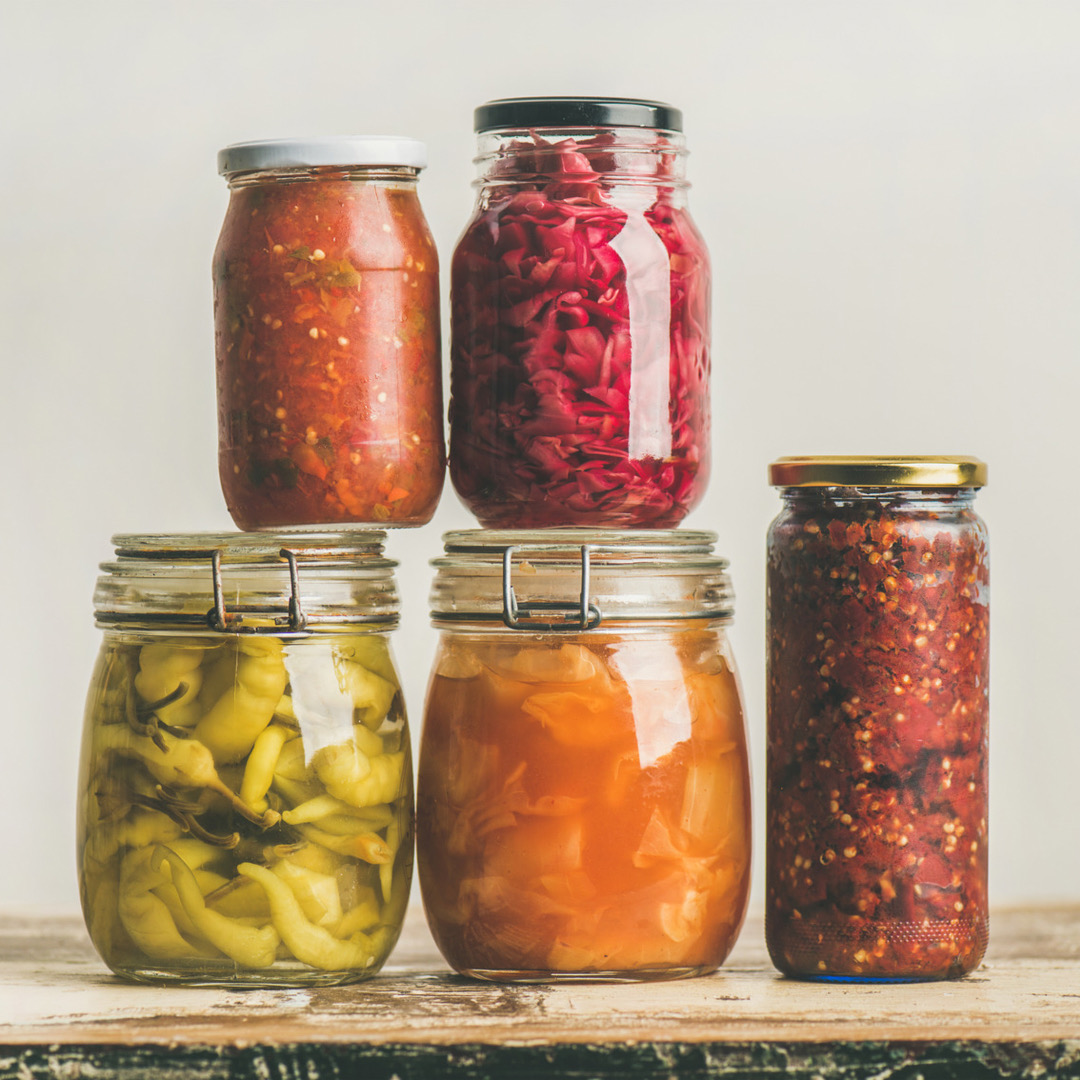Fermented foods have really taken centre stage when talking gut health for some time now. Despite being a very old dietary practice, these days fermented foods are a very trendy and a highly sought-after food.
Research has shown low microbiome diversity has been linked to chronic disease and inflammatory diseases such as obesity and diabetes.
Conversely, a diverse microbiome is associated with reduced risk of chronic and inflammatory disease and overall improved health outcomes.
Therefore, everyone should be aiming to consume a diet which helps to positively shape and increase microbiome diversity.
A recent study, has looked at the effects of plant-based fibre and fermented foods on the gut microbiome and immune system in healthy adults.
The trial involved 36 healthy adults who were assigned to 10-week diet of either:
- Fermented foods – yoghurt, kefir, fermented cottage cheese, kimchi, fermented veggies, vegetable brine drinks and kombucha (average of 4 servings per day at baseline and increasing to an average of 6.3 servings per day at the end of the maintenance phase); or
- High-fibre plant foods – legumes, seeds, whole grains, nuts, vegetables and fruits (average of 21.5g per day at baseline to 45.1g per day at the end of the maintenance phase).
One serving of fermented foods was defined as the following:
- kombucha, yogurt, kefir, buttermilk, kvass = 170g
- kimchi, sauerkraut, other fermented veggies = ¼ cup
- vegetable brine drink = 60mL
After analysing blood and stool samples collected pre and post the diet, results showed:
- Consuming fermented foods increased overall microbial diversity and this was maintained during the maintenance phase which suggests increased diversity likely involved gut ecosystem remodelling.
- Consuming fermented foods decreased inflammatory markers (linked to chronic disease).
- Consuming high-fibre foods did not increase overall microbial diversity.
- Consuming high-fibre foods did not decrease inflammatory markers.
- The high-fibre diet showed increased carbohydrate processing enzymes.
The researchers concluded that increasing fibre intake alone over 10-weeks is not a sufficient period of time to positively impact the gut. It may require a longer duration.
However, fermented foods can be used to improve gut health over a short period time. This may come in handy post antibiotics or post gastro infection.
It’s important to note, the participants were just told to consume more fibre, they weren’t asked to increase the diversity of fibre rich foods. As I have discussed previously, plant diversity (ie aiming for 30 different types of plants per week) is key to to increasing microbiota diversity, read more HERE.
Whilst the trial only involved 36 adults, which is very small, it’s still a good step towards understanding the beneficial impacts of fermented foods on the microbiome and how this can have a systemic effect on our health. This is especially considering that fermented foods are easily accessible and can be added to the diet by most people.
Easy ways to add fermented foods to your diet
Breakfast
- Top scrambled eggs & omelettes with kimchi, sauerkraut and pickled veggies
- Make kimchi pancakes and serve them with avocado or eggs
- Serve tempeh on toast with tahini and tomatoes
- Use yoghurt and kefir in smoothies
- Top toast with kimchi, sauerkraut, avocado and eggs/salmon/feta/smashed beans etc
Snacks
- Add a spoonful of sauerkraut / kimchi to crackers with hummus/ beetroot dip and avocado as the base
- Make a smoothie using kefir, fruit and hemp seeds
- Serve yoghurt with berries and LSA
- Sip on kombucha
Lunch/dinner
- alternate meat/fish with tempeh
- Make a salad dressing using kefir, tahini, lemon, honey and garlic
- Add fermented veggies, kimchi and/or sauerkraut to salads, nourish bowls
- Make a wrap using kimchi/sauerkraut, hummus, tempeh and other salad of choice
- Make a stir-fry sauce / marinade using miso paste, garlic, ginger, chilli, soy and lime juice
- Replace stock with miso paste + hot water
- Toss kimchi through soba noodles, diced avocado, herbs and nuts/seeds, drizzle soy sauce + serve with salmon/other protein as a quick dinner
- If making burgers top them with kimchi or sauerkraut
- Mix kefir into tzatziki along with yoghurt
